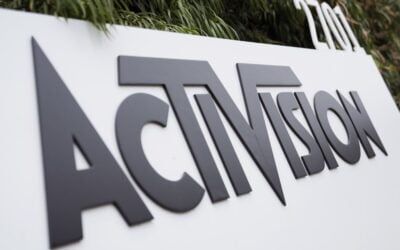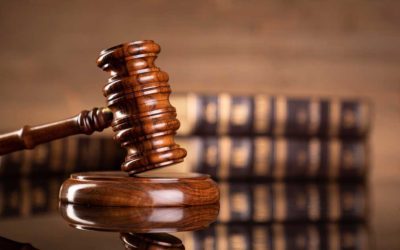Easement Real Estate Dispute Attorneys
Easements and covenants are methods property owners use to grant others rights to their property while retaining title to the land. This land will sometimes be referred to as having been “burdened” or “encumbered” because easements and covenants restrict the owner’s use of the land. Occasionally, a party will fail to respect an easement or covenant, which may lead to disputes and litigation.
Easements
A landowner will use an easement to confer upon another the right to use a specified portion of a property for a stated purpose. The benefits of an easement may be conferred on an individual or on whoever owns a specified property.
Express easements are generally recorded on the deed for the burdened property and are usually governed by contract law. Implied easements are not recorded and are often created by circumstances such as a landowner’s need to access property that would otherwise be inaccessible.
Easements generally fall into three categories:
- Private easements where the landowner has sold or granted an easement to another party for purposes like installing a driveway, allowing access to a lake or beach, or giving neighbor access to sunlight (a solar easement);
- Utility Easements are granted to a utility or municipality;
- Prescriptive easements that result from another’s use of a property continuously for a set period that varies from state to state.
Most easement holders have the right to enjoy it for the purposes for which the easement was granted, so long as they do not unreasonably interfere with the landowner’s rights. The landowner is allowed to use the land for any purpose that does not interfere with the easement holder’s use of the easement.
Interference with the easement holder’s right to use the easement may be considered trespass and courts will often order the removal of any obstruction to an easement. If the interference causes a reduction in the value of the easement holder’s property, the court may award compensatory damages.
If an easement holder makes unreasonable use of an easement, the property owner may bring legal action against the easement holder. The court has several options for resolving the issue, including issuing an order restricting the easement holder’s use of the easement, imposing monetary damages on the easement holder for damage to the landowner’s property, or terminating the easement.
Courts will generally find that once an easement is granted it will last forever unless the document establishing the easement states otherwise. However, they can sometimes be terminated in certain limited circumstances, including:
- The easement holder’s purchase of the land burdened with the easement;
- The landowner’s purchase of the rights to the easement from the easement holder in return for a written release;
- The easement holder abandons the easement (but the easement holder’s failure to use the easement is rarely found to constitute abandonment); and
- When a court finds the easement has been misused.
Covenants
Covenants are binding legal documents in which a landowner agrees to take, or not take, certain actions with respect to the property. Some covenants are attached to the land and will apply to subsequent owners while others expire when a property is transferred or sold.
To be enforceable, a covenant must be in writing and the landowner must have been notified of it. Covenants are often used in housing or business developments to require property owners to maintain the appearance of structures and restrict the activities undertaken on the property. Covenants limiting what can be done on a property are sometimes referred to as “restrictive covenants.”
Most disputes over the enforcement of covenants involve homeowners and their local homeowners’ associations. Usually, it is the association invoking the covenant to force a homeowner to comply with its terms through procedures laid out in the covenant document. This allows the association to resolve most covenant disputes without litigation. But the homeowners’ association often has the right to bring legal action enforcing the covenant if it is otherwise unable to resolve the dispute.
The experienced real estate attorneys at Thomas H. Curran Associates have the skills necessary to draft easements and covenants that are both enforceable and fulfill their intended purpose. Our lawyers will also help clients quickly and effectively resolve disputes over covenants and easements to preserve their property rights. Should litigation be necessary, our attorneys will guide clients through every step of the process to ensure that their interests are protected in the most effective manner possible.
Litigation Practice Results
Recent successful cases handled by the attorneys Thomas H. Curran Associates. Find more here »
Thomas H. Curran Associates Secures Appellate Victory in Insurance Coverage Dispute
In a significant legal victory, Thomas H. Curran Associates (THCA), representing the Plaintiff-Appellant, successfully overturned a trial...
Supreme Court Denies Final Appeal, Finalizing Judgement Obtained by THCA
On June 24, 2024, the Supreme Court of the United States declined the petition to review filed by Sean Dunne and his ex-wife Gayle...
Thomas H. Curran Associates Secures Appellate Victory as Massachusetts Supreme Judicial Court Denies Appellant’s Attempt to Shortcut Ordinary Appellate Review
Thomas H. Curran Associates recently obtained an appellate victory in the Massachusetts Supreme Judicial Court on May 26, 2023, in the...
Thomas H. Curran Associates win is Affirmed in Florida, U.S. District Court – Client Wins Attorneys Fees
Law: Federal Rule of Civil Procedure 37(a)(5) Case: Premier Capital, LLC v. Larry Bryan (AP) Underlying Bankruptcy Case: In re Larry Bryan...
The Second Circuit Affirms Bankruptcy Fraud Judgment Obtained by Thomas H. Curran Associates, Recognizing the Continuous Concealment Doctrine
Law: Continuous concealment doctrine, 11 USC § 727(a)(2)(A), In re Olivier, 819 F.2d 550 (5th Cir. 1987); In re Boyer, 328 F. App’x 711,...
Thomas H. Curran Associates prevails on barring discharge due to fraud by debtor
Thomas H. Curran Associates recently secured a victory on behalf of an institutional asset manager, where the Bankruptcy Court for the...
Litigation Areas of Expertise
Litigation News
Disciplinary judge approves lawyer’s suspension for using ChatGPT to generate fake cases | Colorado Politics
Recently, a Colorado lawyer received disciplinary action for employing artificial intelligence to generate fake case citations in a legal...
US appeals court proposes AI restrictions in all court filings | Jurist
In November, the US Court of Appeals for the Fifth Circuit proposed a new rule requiring lawyers to certify that they either did not use...
Mallinckrodt’s Second Bankruptcy Would cut $1 Billion from Opioid Settlement | STL Today
The Irish based company, Mallinckrodt’s, second bankruptcy may place creditors in ownership of the company and cut $1 billion from the...
The FTC’s case against Microsoft’s Activision acquisition is not going well | Vox
Microsoft and Activision Blizzard are overcoming hurdles to their $69 billion dollar merger. If the merger goes through, Microsoft will...
California Rejects Viking River, Allows PAGA Claims to Proceed | JDSUPRA
Case: Adolph v. Uber Tech., Inc. The California Supreme Court recently rejected the U.S. Supreme Court’s interpretation of the Private...
Supreme Court allows construction to resume on the Mountain Valley Pipeline | AP News
The Court’s ruling affirmed that, in some instances, Congress may have power over federal courts. The pipeline has faced significant...
Disciplinary judge approves lawyer’s suspension for using ChatGPT to generate fake cases | Colorado Politics
Recently, a Colorado lawyer received disciplinary action for employing artificial intelligence to generate fake case citations in a legal...
US appeals court proposes AI restrictions in all court filings | Jurist
In November, the US Court of Appeals for the Fifth Circuit proposed a new rule requiring lawyers to certify that they either did not use...
Mallinckrodt’s Second Bankruptcy Would cut $1 Billion from Opioid Settlement | STL Today
The Irish based company, Mallinckrodt’s, second bankruptcy may place creditors in ownership of the company and cut $1 billion from the...
The FTC’s case against Microsoft’s Activision acquisition is not going well | Vox
Microsoft and Activision Blizzard are overcoming hurdles to their $69 billion dollar merger. If the merger goes through, Microsoft will...
Disciplinary judge approves lawyer’s suspension for using ChatGPT to generate fake cases | Colorado Politics
Recently, a Colorado lawyer received disciplinary action for employing artificial intelligence to generate fake case citations in a legal...
US appeals court proposes AI restrictions in all court filings | Jurist
In November, the US Court of Appeals for the Fifth Circuit proposed a new rule requiring lawyers to certify that they either did not use...
Mallinckrodt’s Second Bankruptcy Would cut $1 Billion from Opioid Settlement | STL Today
The Irish based company, Mallinckrodt’s, second bankruptcy may place creditors in ownership of the company and cut $1 billion from the...
Contact Us
Are You In Need of Legal Counsel for Commercial Litigation, Business Transaction Matters, or a Bankruptcy Matter?
Contact our team today.
Call us at (617) 207-8670 or use the quick contact form below.
Austin Office
7710 N. FM 620
Building 13-D
Austin, TX 78726
Boston Office
15 Broad Street
Suite 610
Boston, MA 02109
New York Office
17 State Street
40th Floor
New York, NY 10004
London Office
The Leadenhall Building
Level 30
122 Leadenhall Street
London EC3V 4AB
Tags: easement real estate dispute attorney easement dispute lawyer easement and covenant dispute




